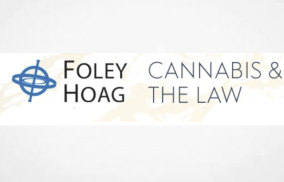October 25, 2024 By Stephen L. Bartlett , Michael McQueeny
In a decision that reads as one of the strongest endorsements of state-based intoxicating hemp regulatory controls in recent memory, the U.S. District Court for the District of New Jersey (“Court”) recently upheld, in part, and struck down, in part, New Jersey’s recently enacted New Jersey Hemp Act Amendments (“NJHAA”). While the lasting impacts of the Court’s opinion may not be fully understood until the New Jersey legislature tweaks the NJHAA and/or the executive branch issues interpretative guidance, the opinion appears to uphold the propriety of the state-based regulatory infrastructure underlying the NJHAA, including a state’s authority to restrict the sale of intoxicating hemp products to only regulated channels such as state-licensed cannabis and alcohol outlets.
Brief Background on the NJHAA
As we previously discussed in September, the NJHAA creates state-based controls and a regulatory infrastructure governing the intoxicating hemp cannabinoid marketplace. At a high level, the NJHAA:
- Distinguishes between lightly regulated hemp products and more heavily regulated intoxicating hemp products.
- Provides the New Jersey Cannabis Regulatory Commission (“CRC”) with primary regulatory authority over intoxicating hemp products, making it responsible for not only promulgating regulations governing the licensing, form factors, packaging, labeling, and testing requirements for intoxicating hemp products but also for enforcement related to non-compliant and unlicensed operators.
- Permits intoxicating hemp beverages, i.e., intoxicating hemp products in beverage form, to be distributed and sold by state-licensed alcohol distributors and retailers.
- Establishes a timeline for rulemaking between and among the CRC, New Jersey Department of Agriculture, the New Jersey Attorney General’s Office, and the Alcoholic Beverage Control (“ABC”).
The unconstitutional portions of the NJHAA in dispute are severable and there is no basis to prevent enforcement of the remaining provisions of the NJHAA that are not at issue in this case. Beyond barring enforcement of part of the NJHAA, the Court declines to engage in any additional judicial surgery to cure the constitutional violations. Modification of the parts of the NJHAA to remedy the preemption and dormant Commerce Clause issues requires careful construction of language and analysis of other statutes at issue.
Post-Decision State of Play
Although invalidating only the constitutionally-barred provisions of the NJHAA, the opinion is somewhat opaque regarding the current enforceability of remaining provisions in the law except for the ban on sales of THC-containing products to anyone under 21 years of age, which the Court expressly countenanced. Indeed, the Court seemingly encouraged the legislative and executive branches to intervene in some fashion but left unanswered the question of whether such intervention would be a precondition to enforcement of the law, stating:
Modification of the parts of the NJHAA to remedy the preemption and dormant Commerce Clause issues requires careful construction of language and analysis of other statutes at issue. That task is better left to the Legislature…The Court leaves to the Legislative and Executive branches of the State’s government how best to adjust the NJHAA and/or its enforcement. (Internal citations omitted).
To date, the only interpretive guidance issued by any segment of the executive branch has been the CRC, which, within days of the issuance of the Court’s decision, acknowledged this apparent enforcement quagmire, posting on its website as follows:
Other provisions of that law relating to the regulation of intoxicating hemp products were scheduled to take effect on October 12, 2024. Due to a court order issued on October 10 in Loki Brands LLC et al. v. Platkin et al., No. 24-cv-9389 (D.N.J.), the State is unable to begin enforcement of these provisions at this time. However, the provisions prohibiting sale to those under 21 remain in effect. The court’s decision is being reviewed, and any further developments will be posted as they become available. (Emphasis added).
At the bottom, there remain some lingering questions regarding the status of the other substantive provisions of the NJHAA, which include registration requirements for entities intending to engage in sales of Intoxicating Hemp Products and instruction to the CRC and ABC to promulgate regulations governing packaging, labeling and testing of such products. However, age-gating transactions related to intoxicating hemp products remain the law of the land (at least for New Jersey), with more to come from other interpretive guidance from the executive branch and/or a fix coming in the form of legislative amendments.
Presumably, given the Court’s recognition of the clear interest of the State in exercising its police powers to ensure the health, safety, and welfare of its citizens relating to intoxicating hemp products, the quickest fix is either: (1) guidance from the Attorney General’s Office that it: (a) will enforce the provisions of the NJHAA evenhandedly as to in-state and out-of-state intoxicating hemp products, and (b) will not enforce the law against anyone simply transporting intoxicating hemp products through the State of New Jersey; or (2) new legislation that: (a) amends the definition of intoxicating hemp product to remove the language specifying that it be produced “in this State”; and (b) makes clear that mere interstate transport is permissible. In the interim, the primary regulator under the NJHAA, the CRC, has indicated that – at least for the moment – it will not “begin enforcement of these provisions at this time.” Caution should be exercised, however, so as not to overlook the enforcement mechanisms granted to local governmental authorities related to intoxicating hemp products, which are separate and distinct from those of the CRC.
More to come.

